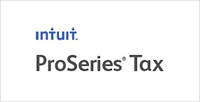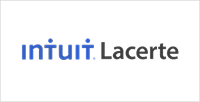
Trusted by CPA Firms for End-to End Tax Return Outsourcing Services
Boost your firm’s efficiency and accuracy with our tax preparation outsourcing solutions. With 15+ years of experience, a 97% CSAT score, and an 85 NPS, QX supports over 300 firms with cost-effective tax outsourcing services that ensure accuracy, compliance, and faster turnaround.







The Challenges You Face
Capacity gaps are costing firms more than revenue and growth. With 42% of accountants declining new projects due to this, missed deadlines and reduced service quality are becoming the norm.
- Talent shortage
- Prolonged Recruitment and Onboarding Times
- Gaps in specialized tax expertise
- High-pressure workload during busy seasons
- Keeping pace with new tax regulations
- High cost of hiring and training
- Surges in Last-Minute Tax Filing Demands
The Impact on Your Business
Capacity issues kill growth. Staff turnover could cost you more than lost revenue—it drains productivity, impacts service quality, and forces constant rehiring. How long can your firm afford the strain?
- Lower overall productivity
- Limited ability to take on new clients
- Turning away work & potential revenue opportunities
- Rising costs due to frequent hiring
- Higher chances of compliance mistakes
- Employee burnout from excessive workload
- Missed growth and profitability opportunities
Combat Staff Shortages, Streamline Operations and Grow Your Tax Practice with Our End-to-End Tax Preparation Outsourcing Services
Book a Discovery Call
Benefits of Outsourcing Tax Preparation to QXAS
Realize Unparalleled Accuracy, Optimal Compliance, and Scalable Solutions. Revolutionize Your Tax Processes with Expert Precision

20+ Years of Expertise in U.S. Tax Preparation
Skilled accountants with extensive knowledge of U.S. tax laws, perfect for managing both seasonal surges and long-term needs.
10,000+ Tax Returns Processed Every Year
Trusted by top accounting firms in the USA for precise and efficient tax return processing
Managed FTE Solutions
Seamlessly integrate full-time tax experts with built-in review and governance, offering flexible staffing that adapts to your needs and ensures reliable, long-term support.
4-Eyed Review Process
A dual-review system that ensures precision and compliance, effectively reducing errors and enhancing quality.

Quick Scalability
Effortlessly adjust your team size to handle seasonal variations or specific project demands with ease.
Cost Savings up to 50% or more
Significant cost savings on operational costs, freeing up resources for investment in growth and strategic initiatives.
Fast Turnaround Times (TAT)
Reliable and prompt service delivery, ensuring deadlines are consistently met.

97% CSAT score
Trusted by top CPA firms in the USA for precise and efficient tax return support.
Trust the Confidence of 300+ Top CPA Firms in Cutting Operational Costs by Up to 50%, Enhancing Profits, and Driving Sustainable Growth
Book a Free ConsultationHow QXAS Powers Stress-Free Tax Season with Expert Tax Outsourcing
We simplify each step, ensuring seamless integration from initial scope to final delivery. Our process is designed to enhance your efficiency and reduce your workload.
Scope of Work
- Preparation of Individual Income Tax Returns (1040)
- Preparation of Income Tax Returns of Fiduciaries (1041)
- Preparation of Income Tax Returns of Non-profit Organizations (990)
- Preparation of Income Tax Returns of Partnerships (1065)
- Preparation of Income Tax Returns of C Corporations (1120)
- Preparation of Income Tax Returns of S Corporations (1120S)
- Preparation of Estate & Gift Tax Returns (706)
- Preparation of IRS Forms including 433-A, 433-B, Form 433-F
- Preparation of Payroll Returns
- Preparation of Sales and Use Tax Returns for States
- Preparation of Year-End Reporting (1099s)
What We’ll Need
- A completed QXAS US tax checklist
- Copy of last year’s tax returns
- Tax software backup
- Copies of tax documents
- Tax information
- Tax software copy (e.g., TurboTax or GoSystem Tax RS)
What You’ll Get
- Reports: Tax return copy and E-file confirmation
- Completed Tax Returns: This includes Individual (1040), Fiduciaries (1041), Non-profit Organizations (990), Partnerships (1065), C Corporations (1120), and S Corporations (1120S) tax returns, all prepared and ready for filing.
- Estate & Gift Tax Returns (706): Fully prepared returns, compliant with relevant tax laws.
- Prepared IRS Forms, including 433-A, 433-B, and 433-F, based on clients’ financial data.
- Payroll and Sales/Use Tax Returns: Complete and compliant payroll returns, as well as state-specific sales and use tax returns.
- Year-End Reporting (1099s): Accurate preparation of necessary year-end tax documents.
Real Success, Real Impact
Daniel E. Greene, CPA Firm Saves $99,000 with QXAS Outsourcing


Success Stories – Tax Prep Outsourcing for CPA Firms
Hear directly from our clients about their experiences with our tax prep outsourcing service.
Cristopher Carmona, CPA, speaks about his bookkeeping outsourcing experience with QXAS. He emphasizes how efficiently the team set up everything remotely and executed all functions, without any hiccups.
Experience the QXAS Advantage in Tax Preparation Outsourcing.
Say yes to top-tier efficiency, accuracy, and security tailored to elevate your firm’s tax operations.

Market Leaders in Outsourcing

Managed FTE Solutions

4-eyed Review Process

High-quality Talent

100% Data Security Assured

Seamless Integration

Enhanced Reporting & Governance

Consistently high C-SAT Scores (>96%)
How We Streamline Your Tax Prep Process
We simplify each step, ensuring seamless integration from initial scope to final delivery. Our process is designed to enhance your efficiency and reduce your workload.
Identifying the Need for Bookkeeping Outsourcing in Your Firm
At QX, we pinpoint bookkeeping inefficiencies so your team can focus on high-value services, unburdened by routine tasks.
Streamlining Your Bookkeeping Processes
We analyze and streamline your bookkeeping workflows, allowing your staff to concentrate on advisory roles and client relationships, thus enhancing efficiency.
Customized Solutions for Your Firm’s Growth
Our tailored bookkeeping services adapt to your firm’s unique needs, boosting your capacity to serve clients and scale effectively without additional overhead.
Software Capabilities in Tax Preparation
Your software, our expertise—the QX team of expert tax preparers is trained to use the tools you trust, ensuring a seamless and efficient process.







FAQs
Got questions? Get all your answers about outsourcing and discover how QX’s strategic expertise can transform your firm.
With tax return preparation outsourcing, you can add a skilled team of tax preparers to your team quickly and save up to 50% on each tax prepared. This will result in significant cost savings in the tax season and boost profitability. Also, scaling your tax preparation team with outsourced tax preparers will help your firm increase productivity, which will impact revenue generation by a long way.
The process is straightforward. You can contact QX Accounting Services by filling up the form on this page, or just calling us, or sending in an email. Our managers will get in touch, discuss your tax preparation requirements in detail, and explain the process. You will also get a clear idea of the process by going through our migration process.
Various parameters are used to identify the cost of a project, like the volume of work, etc. We work with clients to determine the correct pricing structure to fit their budgetary needs. We offer a variety of engagement models for clients to choose from, to suit their custom requirements.
All the outsourced tax preparers have varying degrees of experience as per the client’s need. We have tax preparers with 1-2 years of experience going up to tax preparers who have spent many years preparing taxes. What’s more, we can also add outsourced tax managers to your team who can handle a team. Our tax preparers are trained to work independently, requiring no micromanagement.
QX Accounting Services has been in the business of tax outsourcing for many years and kept in step with changing US tax legislation. Having worked successfully with clients with different tax preparation requirements, we understand our way around even the most complex tax preparation needs. Also, we adhere to stringent SLAs and extremely high-quality standards. More importantly, you can take a Free Trial, to evaluate our services.
To outsource tax preparation servies, begin by identifying reputable tax outsourcing services that align with your firm’s needs. Ensure they have a track record of accuracy, compliance, and timely delivery. Next, establish clear communication channels and define your expectations regarding turnaround times and confidentiality. Before proceeding, verify the service provider’s credentials and security measures to protect sensitive information. Finally, set up a structured workflow for document transfer and review. Opting for a service like QX Accounting Services ensures you have a reliable partner adept at managing the intricacies of tax preparation outsourcing.
The cost of outsourced tax preparation can vary widely, depending on the complexity of the tax returns and the experience level of the outsourced provider. Typically, firms may charge based on the engagement model with rates that reflect the intricacy of the services required. Engaging in outsourced tax preparation often proves to be cost-efficient for firms looking to leverage specialized tax expertise and technology while managing operational costs. For precise pricing, firms should consult directly with service providers who can offer tailored quotes based on specific needs.
Yes, CPAs can hire outsourced tax professionals to work on returns. Engaging with an outsourced tax service allows CPAs to manage increased demand during peak seasons, access specialized skills, and improve turnaround times, all while maintaining high standards of accuracy and compliance.
When selecting a tax preparation outsourcing company, consider these key factors:
- Experience and Expertise: Look for a provider with a strong track record in tax return preparation outsourcing, evidenced by their years in business and client testimonials.
- Data Security: Ensure they have robust data security measures in place to protect sensitive information.
- Compliance and Quality: The company should be well-versed in U.S. tax laws and demonstrate a commitment to accuracy and compliance.
- Technology: Check if they use advanced tax software that is compatible with your systems.
- Communication: Choose a firm that prioritizes clear, timely communication to facilitate a smooth outsourcing partnership.
Yes, QXAS’ outsourced tax prep expert team possesses the expertise required for meticulous tax return preparation, encompassing the complexities of international tax issues. They stay current with global tax regulations and are adept at navigating cross-border tax regulations, to ensure precision and compliance in every aspect of tax return processing.
Yes, QX is equipped to manage both individual and business tax return outsourcing. With a comprehensive understanding of tax regulations, QX ensures precise handling of tax obligations for businesses of all sizes, delivering tailored business tax return outsourcing services to meet the unique needs of each client.
Outsourcing your company’s tax return preparation to QX is a straightforward process. Start by visiting the tax outsourcing services section at qxaccounting.com/usa. Here, you can quickly get in touch with a QX expert using the contact information available. They’ll walk you through each step, ensuring your tax preparation needs are seamlessly transitioned and managed by QX’s team of professionals.
QXAS delivers tax preparation outsourcing services tailored for CPAs, accounting firms, and tax professionals across various sectors. Their expertise is designed to streamline the tax process, ensuring precision and compliance for all client engagements.
Absolutely. QX prides itself on delivering tax return preparation services that are both accurate and timely. With a stringent focus on quality and deadlines, QX ensures that your client’s tax returns are prepared with the utmost precision and delivered within the agreed timeframes, so you can rest assured that your outsourcing needs are in reliable hands.
We understand the critical nature of deadlines in tax work, and our processes are designed to deliver your requirements promptly. Our commitment to precision and timeliness in tax return preparation has made us a trusted partner for numerous CPA firms and accounting businesses across the USA.
Our Latest Insights
Let’s Work Together
Explore outsourcing solutions, request a free trial or discuss your practice’s needs with our expert consultants.




 Book a Virtual Meeting
Book a Virtual Meeting  Get Your ROI Estimate
Get Your ROI Estimate 